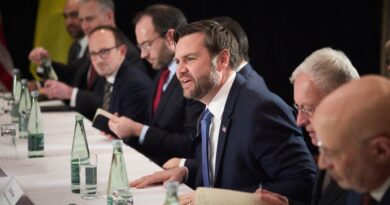Unveiling the Hidden Brilliance of the Ukraine Mineral Agreement

President Trump has recently secured a significant agreement with Ukraine, which may have far-reaching implications beyond just rare earth minerals.
Announced yesterday by Treasury Secretary Scott Bessent, the deal not only opens Ukraine’s extensive mineral resources to US investment.
This agreement bridges the gap between Presidents Trump and Zelensky regarding American support for Ukraine and positions US companies to lead in Ukraine’s postwar mining and reconstruction efforts.
“Our investments are secure, and we can begin extraction,” Trump stated at the cabinet meeting. “The US presence will deter many adversaries.”
Trump’s comments not only addressed threats from Russia but also positioned the United States as a key stakeholder in Ukraine’s economic landscape.
During the signing ceremony, both Bessent and Ukraine’s Economy Minister Yulia Svyrydenko expressed optimism. Bessent described it as a “great deal” for both Washington and Kyiv, stating, “It’s a win-win.”
As part of the agreement, both parties will establish a Joint Reconstruction Investment Fund, co-managed equally.
Ukraine maintains full authority over its natural resources. Ukrainian lawmakers, who need to approve the contract, have indicated that the US can include its future military aid as a financial input into the fund.
Bessent’s strategic foresight broadens the scope of the agreement beyond mining.
Ukraine is known to possess around 5% of the world’s essential materials, including titanium, lithium, and rare earth elements necessary for manufacturing electronics and defense systems. Additionally, Ukraine is on the brink of a substantial reconstruction phase.
A World Bank estimate suggests that rebuilding after the Russian invasion may cost $524 billion over the next decade. The agreement positions American firms for priority access to reconstruction contracts.
“This agreement clearly signals to Russia that the Trump administration is committed to a peace process focused on preserving a free, sovereign, and prosperous Ukraine,” Bessent remarked.
This deal also sends a strong message to Beijing.
China has shown interest in being involved in Ukraine’s postwar reconstruction. Bessent’s agreement undermines that ambition.
“No state or individual that has supported the Russian war effort will benefit from Ukraine’s reconstruction,” Bessent asserted.
This is unfavorable news for Beijing, which has supplied vital components to Russia’s military, including electronics integral to tanks and missiles.
Last month, President Zelensky accused Beijing of aiding Russia in drone production for battlefield use, and Kyiv claims that over 150 Chinese nationals are fighting alongside Russian troops in Ukraine.
To emphasize the message to Beijing, Bessent appointed the US Development Finance Corporation—an entity initiated by Trump in his first term to counter China’s infrastructure efforts—to oversee the American side of the agreement.
This deal not only forges a long-term commercial alliance with Kyiv but also makes it more difficult for Washington to disengage from Ukraine without compromising its strategic investments.
In recent weeks, both Vice President JD Vance and Secretary of State Marco Rubio indicated that the US might withdraw from the peace negotiation.
Bessent’s actions alter this dynamic.
By tying the US and Ukraine together through a joint partnership, this deal stands as one of the most significant accomplishments of Trump’s first 100 days.
In Moscow, officials reacted with skepticism to the agreement. Russia’s goals involve the eradication of Ukraine, not the strengthening of its economic ties with the US.
“Trump has coerced the Kyiv regime into paying for American assistance with its mineral wealth,” expostulated former Russian President and Deputy Head of the Security Council Dmitry Medvedev online. “Now, they will have to finance military supplies with the resources of a declining nation.”
However, for Russia, Trump’s deal diminishes the chances of Ukraine vanishing anytime soon.
Trump perceives business relationships as more binding than conventional security assurances.
He believes that agreements such as this one are more credible—and sustainable—than the vague commitments offered to Ukraine by previous presidents like George W. Bush and Bill Clinton.
Instead of issuing empty checks or indistinct promises, Trump is demonstrating his confidence in Ukraine’s post-war prospects.
If the US is to recover its investments, Ukraine must remain safe from future threats.
This is a reality that Moscow will have to acknowledge at the negotiation table.
Peter Doran is an adjunct senior fellow at the Foundation for Defense of Democracies.



